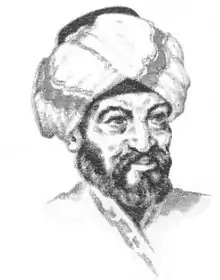873
Year 873 (DCCCLXXIII) was a common year starting on Thursday (link will display the full calendar) of the Julian calendar.
| Millennium: | 1st millennium |
|---|---|
| Centuries: | |
| Decades: | |
| Years: |
| 873 by topic |
|---|
| Leaders |
|
| Categories |
|
| Gregorian calendar | 873 DCCCLXXIII |
| Ab urbe condita | 1626 |
| Armenian calendar | 322 ԹՎ ՅԻԲ |
| Assyrian calendar | 5623 |
| Balinese saka calendar | 794–795 |
| Bengali calendar | 280 |
| Berber calendar | 1823 |
| Buddhist calendar | 1417 |
| Burmese calendar | 235 |
| Byzantine calendar | 6381–6382 |
| Chinese calendar | 壬辰年 (Water Dragon) 3569 or 3509 — to — 癸巳年 (Water Snake) 3570 or 3510 |
| Coptic calendar | 589–590 |
| Discordian calendar | 2039 |
| Ethiopian calendar | 865–866 |
| Hebrew calendar | 4633–4634 |
| Hindu calendars | |
| - Vikram Samvat | 929–930 |
| - Shaka Samvat | 794–795 |
| - Kali Yuga | 3973–3974 |
| Holocene calendar | 10873 |
| Iranian calendar | 251–252 |
| Islamic calendar | 259–260 |
| Japanese calendar | Jōgan 15 (貞観15年) |
| Javanese calendar | 771–772 |
| Julian calendar | 873 DCCCLXXIII |
| Korean calendar | 3206 |
| Minguo calendar | 1039 before ROC 民前1039年 |
| Nanakshahi calendar | −595 |
| Seleucid era | 1184/1185 AG |
| Thai solar calendar | 1415–1416 |
| Tibetan calendar | 阳水龙年 (male Water-Dragon) 999 or 618 or −154 — to — 阴水蛇年 (female Water-Snake) 1000 or 619 or −153 |
Events
Europe
- Carloman, son of King Charles the Bald, is hauled before a secular court and condemned to death – for plotting against his father. He is blinded, but avoids imprisonment by escaping to the East Frankish Kingdom, where his uncle, Louis the German, gives him protection.[1]
- Al-Andalus: The city of Toledo (modern Spain) rises up for a second time against Umayyad rule, due to ethnic tensions over two years.
Britain
- The Danish Great Heathen Army, led by the Viking leaders Halfdan and Guthrum, attack Mercia and capture the royal centre at Repton (Derbyshire). The Vikings establish an encampment with a U-shape ditch, on the south bank of the River Trent and spend the winter there.[2]
Abbasid Caliphate
- Azugitin, Abbasid caliph Al-Mu'tamid appointed Azugitin as governor of Mosul with deputies.
- Muhammad ibn Ali al-Armani, was killed at the Caliphate - Byzantine border in 873.
- Muhammad ibn Tahir, Muslim governor of Khorasan, is overthrown by the Saffarids, led by Ya'qub ibn al-Layth, who conquer the capital, Nishapur. Khorasan is annexed to their own empire in eastern Persia. The Tahirid Dynasty falls.
China
- August 15 – Emperor Yi Zong (Li Cuī) dies after a 13-year reign. He is succeeded by his 11-year-old son Xi Zong, as ruler of the Tang Dynasty. During his reign, a widespread failure of the agricultural harvest leads to famine (which causes people to resort to cannibalism) and agrarian rebellions.
Births
- Abdullah al-Mahdi Billah, was the founder of the Isma'ili Fatimid Empire, the only major Shi'a caliphate in the 10th century history, and the eleventh Imam of the Isma'ili faith (d. 934)
- Abu Yazid, Kharijite Berber leader (d. 947)
- Ahmad al-Muhajir, Muslim imam (d. 956)
- Al-Tabarani, Muslim hadith scholar (d. 970)
- Fujiwara no Sadakata, Japanese poet (d. 932)
- Ordoño II, king of Galicia and León (d. 924)
Deaths
- July 8 – Gunther, archbishop of Cologne
- August 1 – Thachulf, duke of Thuringia
- August 15 – Yi Zong, emperor of the Tang Dynasty (b. 833)

Death of Al-Kindi. He was an Arab Muslim philosopher, polymath, mathematician, physician and musician. Al-Kindi was the first of the Islamic peripatetic philosophers, and is hailed as the "father of Arab philosophy
- Al-Kindi, Muslim philosopher and polymath
- Du Cong, chancellor of the Tang Dynasty (b. 794)
- Ecgberht I, king of Northumbria
- Hunayn ibn Ishaq, Muslim scholar and physician (b. 809)
- Ivar the Boneless, Viking leader (approximate date)
- John III, Syriac Orthodox patriarch of Antioch
- Kang Chengxun, general of the Tang Dynasty
- Lethlobar mac Loingsig, king of Ulaid (Ireland)
- Malik ibn Tawk, Muslim governor
- Muhammad ibn Ali al-Armani, Muslim general
- Rodrigo, Asturian nobleman
- Rodulf Haraldsson, Viking leader
- Shinshō, Japanese Buddhist monk (b. 797)
- Vímara Peres, Asturian nobleman
- Wei Baoheng, chancellor of the Tang Dynasty
References
- McKitterick, Rosamond (1983). The Frankish Kingdoms Under the Carolingians, 751-987 (Illustrated ed.). Longman. pp. 186–187. ISBN 978-0-582-49005-5.
-
- Hill, Paul (2009). The Viking wars of Alfred the Great. Westholme. p. 57. ISBN 9781594160875.
This article is issued from Wikipedia. The text is licensed under Creative Commons - Attribution - Sharealike. Additional terms may apply for the media files.